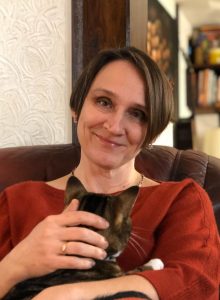
Elena is a member of the Spatial Data Infrastructure Team, serving as a Senior Research Computing Engineer. She holds a Ph.D. in Particle Physics and spent over a decade in academic research at particle accelerator laboratories in the USA and CERN. Transitioning into High-Performance Computing, she was part of the HPC team for over 11 years, managing Iridis, the University’s supercomputing system.
In 2024, Elena joined WorldPop, bringing her expertise in supporting, planning, implementing, and maintaining the WorldPop Spatial Data Infrastructure (SDI). She is also dedicated to helping the WorldPop research community make the most of the University’s HPC resources.


